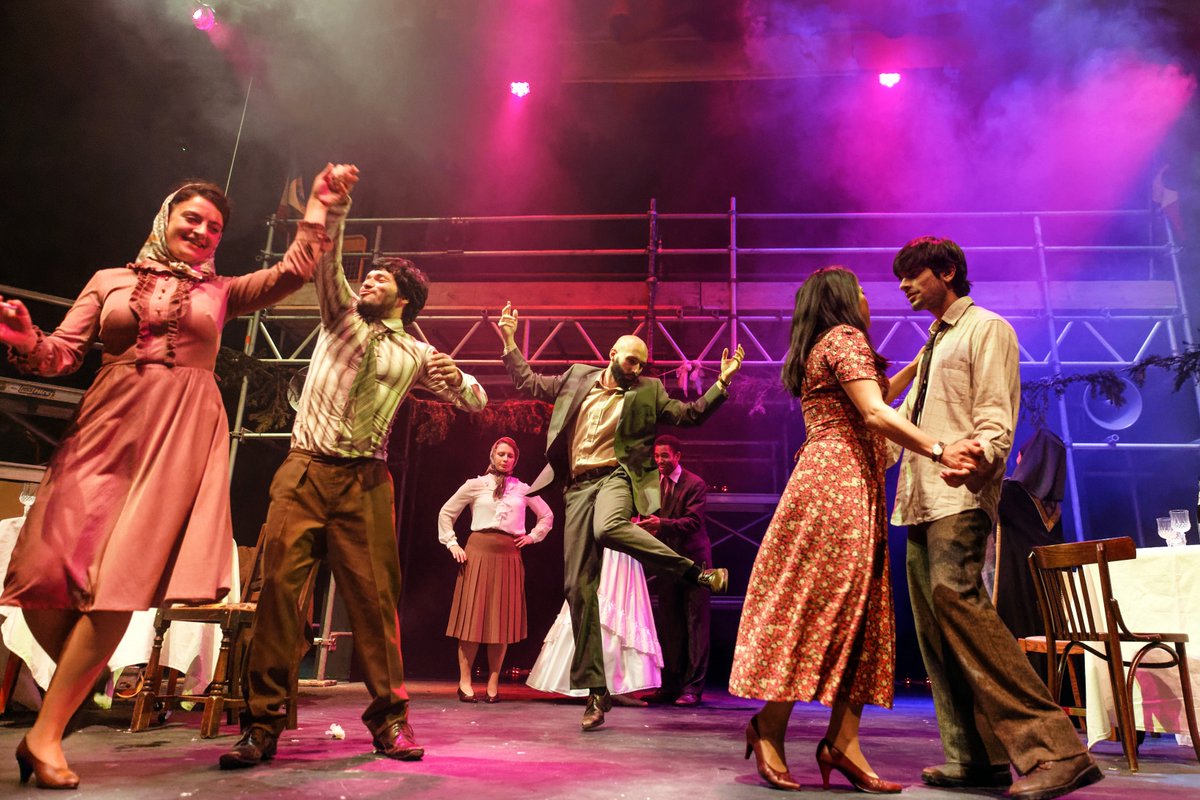 In 1990, soon after her international success with Top Girls, and one year after the Romanian revolution, Caryl Churchill went to Romania with a group of students from the Central School of Speech and Drama along with director, Mark Wing Davey. They stayed with Romanian drama students and their families and this play is the result of their efforts. It is mainly in English but there is also lots of Romanian spoken. The audience is taught small snippets of Romanian, which in this production are cleverly projected onto the simple, but effective staging at the back.
In 1990, soon after her international success with Top Girls, and one year after the Romanian revolution, Caryl Churchill went to Romania with a group of students from the Central School of Speech and Drama along with director, Mark Wing Davey. They stayed with Romanian drama students and their families and this play is the result of their efforts. It is mainly in English but there is also lots of Romanian spoken. The audience is taught small snippets of Romanian, which in this production are cleverly projected onto the simple, but effective staging at the back.
It was an excellent choice of play for this group of overseas postgraduate drama students as their accented voices added to the verisimilitude of the piece. Gary Owston, the dialect coach, must have worked particularly hard to produce the completely convincing Romanian accents.
The play is split into three parts: pre the revolution during and after. In the first part we follow the fortunes of two families under the repressive regime only being able to speak their minds while the radio is turned on full blast. The two families, one working class and one professional, are connected by a love affair or perhaps more realistically a relationship. The pressure the securitate could put on families is evident and the how teaching in schools followed the party line. The cast manage to make it both disturbing and amusing.
The middle section is an account of the revolution as seen by different characters and these are obviously vox pop probably recorded at the time, showing how difficult it was to really know what was going on. For this scene, the actors had to double up on their parts. It is a tribute to their acting skills that these new characters were so very different that I had difficulty identifying the actors from the first half.
The third part is post the revolution where we return to the families again and as one previous critic put it “the paroxysms of xenophobia and paranoia often seem more frightening than the sullen episodes of repression that preceded them.” The atmosphere was wonderfully created by the design of Susan Pearce as mentioned before, with the drab clothes of Eastern Europe, set against a simple scaffold background with large moveable trolleys. Max Key’s excellent direction means that this is very much a group effort and it is difficult to pick out individual performances. However, Emma Pauly was very convincing in all different parts she played. Some of the action is highly personal with realistic interaction between the characters and some of the words are directed straight at the audience. Good actors declaim their lines and excellent actors connect with the audience as though they were having a conversation; this cast had both. Perhaps this play is where Caryl Churchill started to reveal her zaniness? We knew about her interest in personal relationships set in a particular political context from Top Girls, but in this she also brings in an angel, a talking dog and a vampire, to give a particular perspective on the piece. As in Brecht, you are not supposed to forget that you are watching a stage production.
This is an excellent version of an interesting play, which from the very way it was conceived, is inevitably “a bit drawn out and unwieldy”, but whose themes are still deeply relevant. ★★★★☆ Keith Erskine 19th July 2018
Production photo by Craig Fuller

